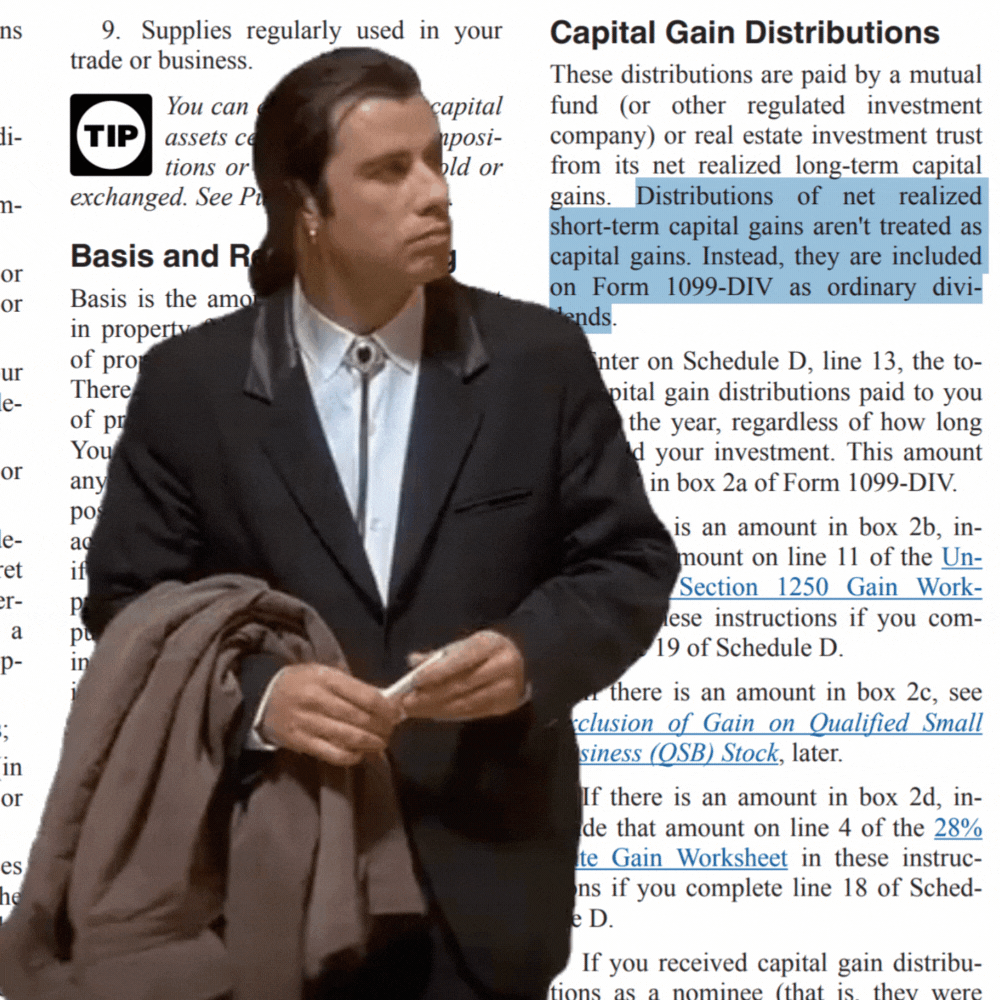Short-term capital gains distributed by mutual funds (and ETFs) are taxed as ordinary income
Canary in the coalmine
Announcements…
🔨 Job alert: Fast-growing fintech startup hiring a Portfolio Manager to lead exchange fund strategy. 7+ years exp. Remote-friendly. Message me.
🔬 Call for papers: JWM - Managing Concentrated Wealth due Feb 2026. Nathan Sosner, a principal at AQR, is this issue’s Special Section Editor. Submit papers here.
🎉 Basis Northwest is my 2026 taxable wealth conference. Check out the landing page for more info.
📢 Advertise here: Jobs, events, software, adviser services, etc. Message me.
Before jumping in, I’m going to talk about IRS tax forms and how data flow from portfolios to tax returns. This is not tax preparation advice. I’m just reading the literal words from tax forms and their instructions and connecting the dots. Hire a professional tax preparer and/or financial, tax, or legal adviser for anything to do with you personally.
Short-term capital gains distributed by mutual funds (and ETFs) are taxed as ordinary income.
If a mutual fund or ETF distributes short-term capital gains, it suggests to me that something is a little funky.
Maybe the MF/ETF realizes a lot of short-term capital gains because it’s actively managed and trades a lot. Or maybe it’s an ETF getting redeemed aggressively and doesn’t have time to heartbeat away its low-basis positions, so it realizes STCG while raising cash. Perhaps it uses §1265 contracts, which are typically marked-to-market and might distribute 60/40 long- short-term capital gains
Whatever the reason, mutual fund and ETF net short-term capital gains distributions are odd, and I want to understand why as a sort of canary in the coal mine.
To be clear, I’m not talking about buying a mutual fund or ETF and selling it a couple of months later. That’s 1099-B stuff.
I’m talking about buying a mutual fund or ETF, doing nothing, and it realizes net short-term capital gains internally and then shoves them out as an ordinary dividend on a 1099-DIV.
You probably feel one of the following ways now:
That's obvious. I already know that
I don't believe it, you are wrong
Who cares? ETFs use heartbeat trades and don't distribute STCG
Who cares? The STCG are tiny and not worth worrying about
Scholars of this corner of the tax code and many tax preparers already know net STCG from mutual funds and ETFs are treated as ordinary, including this kind gentleman.
Others simply can’t believe it.
So, let’s start with some examples, and then get into the weeds about how mutual fund and ETF net short-term capital gains become ordinary income.






